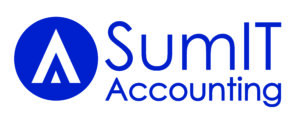YEAR END TAX TIPS
11th June 2021
by Cathy Hall
As the end of the financial year fast approaches it is time to take action.
Planning and action prior to 30 June could provide a business with substantial tax savings and place it well for the coming year’s operations.
Below we outline some taxation considerations which may bring welcome relief to your business’s 2021 taxation liability.
Please note that the following information is general advice only and not personalised for your unique needs, objectives or financial situation. It is important to seek professional advice before implementing any action to ensure that it is appropriate for you.
Temporary Full Expensing is a Covid Stimulus measure introduced by the Federal Government to allow small business to receive a 100% tax deduction for the cost of certain eligible new assets. In an extraordinary measure the ceiling on the asset cost has been removed, allowing a full income tax deduction for the entire cost of the asset. This is in vast contrast to the previous rules which required business to claim a deduction for an asset’s cost over a number of years (depreciation).
Who is eligible? Businesses with an aggregated turnover of less than $5 billion.
What assets qualify? The asset must meet the following criteria to qualify:
How much deduction – 100% of the business portion of the asset’s cost. Any private portion is non-deductible.
What about cars? Cars are different to other assets in that the business can only deduct up to the “car limit”.
For the 2021 year the car limit is $59,136. It should be noted that the business’s GST claim is capped at 1/11 of the car limit.
What is a car? A vehicle designed to carry a load of less than 1 tonne and fewer than 9 passengers.
The Temporary Full Expensing measures provide a greatly expanded scope to claim tax deductions and hence, reduce the income tax liability of a business.
The opportunity to fully expense an asset may however, entice some business operators to buy assets for the sole purpose of reducing the tax position. If the business doesn’t need the asset or cannot afford the asset this may put undue strain on the business cash flow.
ONLY BUY ASSETS THAT THE BUSINESS NEEDS AND CAN AFFORD
How much tax does the business save when fully expensing? When claiming any tax deduction the tax liability of a business is reduced by:
The business portion of the asset’s cost x the business’s tax rate
Example: XYZ Pty Limited buys an eligible asset for $50,000. The asset is used 100% for business purposes.
The tax saved is $50,000 x 26% = $13,000
So whilst $13,000 is saved in tax, the company is still out of pocket $37,000.
Final word: To buy assets just to save on tax, is a waste of business money and in fact, is non-deductible if the particular asset is not connected to the earning activities of the business. Only buy assets the business needs and can afford.
Within the Covid Stimulus Package, the Federal Government has also introduced the Loss Carry Back Provisions.
This measure allows “corporate tax entities” with an aggregated turnover of less than $5 billion to “carry back losses”. This is in contrast to the previous provisions which only allowed losses to be carried forward and offset against future profits.
What is carrying back losses? A current year loss can offset a prior year profit, resulting in a refund of the tax paid in that prior year, subject to certain limits.
When does it apply? Losses made in either the 2020, 2021, 2022 or 2023 years can be offset against profits made at any time from the 2019 financial year.
It makes for an effective way to alleviate cashflow strain in a loss year.
Covid Stimulus measures also allow for an increased home office claim where work time spent in the home office has increased. This is especially relevant to sole traders, but may also have application to other business entities.
It is important to assess the level of actual profit prior to 30 June, and to forecast that position out to the end of the financial year, in order to create an estimate of where the tax position of the business currently sits. Strategy and decision making can then take place in order to optimise the business’s tax position in light of cashflow and other operational considerations.
A business can claim tax deductions for expenses directly connected with the carrying on of business. Business should consider maximising deductible expenditure prior to 30 June in order to reduce tax liabilities. The old rule still applies though – do not spend if the business doesn’t need it or can’t afford it.
Deductible spending generally includes purchases that the business is invoiced for before 30 June, but not paid for until after that date.
Remember also, that any expense used partly for private purposes is only deductible to the extent of its business use.
For employees
Superannuation is deductible only when it is physically paid. So, if the business pays its June quarter super liability by its due date, being 28 July 2021, then the amount will not be deductible until the 2022 financial year. You can bring forward this deduction by paying the superannuation before 30 June.
Note: the contributions must be received by the fund by 30 June 2021 in order to claim the deduction in the current financial year, so business must make the payment a few days in advance.
For Individuals
Individuals can contribute to their superannuation fund and gain a deduction for those contributions, up to a limit of $25,000. This limit includes all superannuation contributions for the year, including those made by an employer or otherwise salary sacrificed by you. It is important not to exceed the $25,000 cap as this would create an additional taxation liability. Most individuals, regardless of their employment arrangements, will be able to claim a full deduction for personal super contributions they make to their super fund until they turn 75. For those aged 65-74 there is a work test that must be passed for eligibility to deductible contributions.
Increasing your deductible contributions to $50,000
There is a one-off opportunity to make two lots of deductible super contributions in one year, totalling $50,000 for each member. This is a complex area and income tax advice should be attained before attempting to use such a strategy.
This is an excellent strategy for large profit year’s but is only attainable if the superannuation fund’s trust deed allows, and practically, best suited to self-managed superannuation funds.
A prepaid expense is a cost the business incurs under an agreement for something to be done (in whole or in part) in a later income year (its eligible service period). Generally, a prepaid expense is deductible over the eligible service period and not when the expense is paid for.
If however:
the business will be eligible to deduct the prepayments immediately in the current financial year.
It is important to meet with your taxation adviser before 30 June in order to plan, not only for taxation, but also for operations relating to the coming financial year.
All successful businesses monitor their current financial position and plan future financial actions.
Remember that a struggling business did not plan to fail, it failed to plan. So take action now and contact your taxation adviser prior to 30 June.

Cathy Hall
SumIT Accounting
cathyh@sumitaccounting.com.au

Comments posted to this page are moderated for suitability. Once your comment has been checked it will be uploaded to the site.